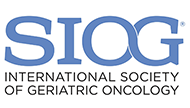October 06, 2020

Introduction
The COVID 19 pandemic has had an unprecedented impact on many medically compromised individuals including cancer patients. This ranges from delayed or suspended cancer screening and/or diagnostic services, suboptimal cancer treatment owing to the prioritization of COVID 19 patient care, and discontinuation of various clinical trials, jeopardizing longer-term therapy development.
The COVID-19 pandemic also poses a barrier to equal and evidence-based management of cancer in older adults. Although the data on the impact of COVID-19 on older patients with cancer is deficient, they are likely to be at a higher risk of infection, and have poor prognosis, which could be worsened due to the disruption of cancer care during lockdowns imposed as preventive measures to curb the COVID 19 spread.
A recent paper by the International Society of Geriatric Oncology (SIOG), describing the global perspectives of cancer care for older patients during COVID-19, reported similar challenges in different countries when providing care for this age group. Hence, the way forward suggested was to study the effect of COVID-19 on this population, as well as its effect on age-related disparities, to strengthen patient-physician communication, and to consider the patients’ treatment preferences. In addition, SIOG has recently proposed recommendations on the implications of the pandemic on several aspects of cancer care in this age group including geriatric assessment, surgery, radiotherapy, systemic treatment, palliative care and research. Another important aspect in this matter is the training of our future colleagues who are trained in geriatric oncology during this pandemic. Obviously, the pandemic poses an extra strain on training programs, as supervision moments might be cancelled, residents might engage in other tasks than usual, and conferences or classes are cancelled.
Personal experience
In the Netherlands, Medical Oncology is a subspecialty of Internal Medicine. The residency/fellowship takes 6 years, in which we combine general Internal Medicine with Medical Oncology training. Patients with COVID-19 are treated mostly by internists, which means that all residents and fellows in our hospital are fully employed in the COVID-wards and Emergency Room, while our own patients with cancer obviously still need attention and care. Inevitably, the time that we can spend on our subspecialty (medical oncology) gets shortened due to increased work load in the Internal Medicine departments. Although training programs can be extended on request, not many colleagues choose this option.
Besides the increased work capacity, we all struggle with the mental stress that this pandemic brings. I will never forget my very first night shift on the COVID-ward, where I had to ask the ICU department to admit five of my patients in only a few hours time. All these factors result in less energy and time to invest in our residency/fellowship.
However, this crisis is unique, and not many medical specialists will have learned to deal with situations like these in their residency training. By taking care of patients with a completely new disease, we learn to adapt quickly, to recognize signs and adequately apply new treatments. Furthermore, we learn to manage our time schedules and adapt treatment plans. We are forced to develop new ways to communicate with our patients (i.e. video calls) and to triage during telephone consults.
I therefore dare say that medical oncologists who were trained during this pandemic are equipped for the future.
References
- Richards M, Anderson M, Carter P, Ebert B, Mossialos E. The impact of the COVID-19 pandemic on cancer care. Nat Cancer. 2020;1(6):565-567.
- Battisti N, Mislang A, Cooper L et al. Adapting care for older cancer patients during the COVID-19 pandemic: Recommendations from the International Society of Geriatric Oncology (SIOG) COVID-19 Working Group. J Geriatr Oncol. 2020.
- Desideri I, Pilleron S, Battisti NML, et al. Caring for older patients with cancer during the COVID-19 pandemic: A Young International Society of Geriatric Oncology (SIOG) global perspective. J Geriatr Oncol. 2020;11(7):1175-1181.


Leave A Comment
You must be logged in to post a comment.